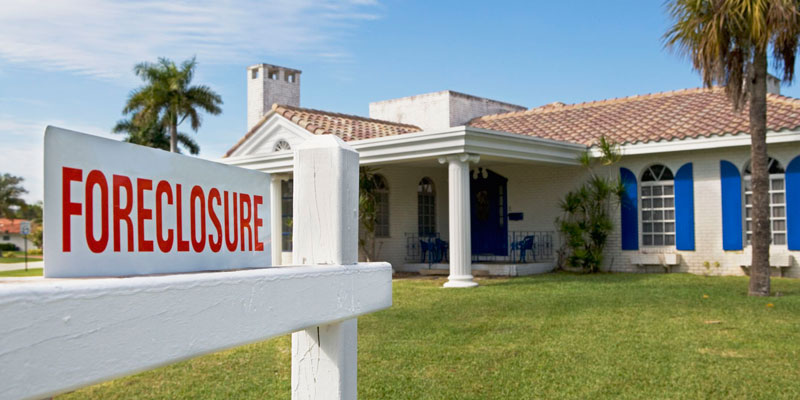REO is a property owned by a bank that failed to be sold at an auction for foreclosure. If homeowners fail to repay the mortgage, they can sell their home immediately and give the profits to the bank or offer it to the bank to be used for foreclosure. Foreclosure is the legal procedure whereby the bank or other lender takes over the property in default and then attempts to sell it to recover its funds.
The lender organizes an auction for foreclosure where prospective buyers can bid for the property. It is then auctioned off to the most bidder. At times, even the top bidder isn't enough for the lender's amount to pay. In this scenario, the bank or the lender becomes the owner of this property until it can sell the property at the price it wants to.
Understanding REO Properties
When the borrower fails to pay his mortgage, their preforeclosure process typically involves short sales in real estate or an auction for the public. If neither of these options is successful, the foreclosure process can be completed with the lender - a bank, for instance, taking ownership of the house. Banks might try selling REO properties that are part of their portfolio without assistance from real estate brokers. If this happens, banks typically advertise the REO property on their website. Bank loan officers could inform customers who are looking for homes of the REO properties that are in the portfolio.
Why Does Real Estate Owned (REO) Matter?
REOs are usually cheaper than comparable properties; however, they typically require renovation or other investments. Banks don't want to be in the real estate market; therefore, when they have REOs in their possession, they will usually try to get the property sold and recover at least a portion of the mortgage amount. This could include the payment of tax liens or other problems associated with the property. They might offer them for less than market value. That's why buyers of real estate are drawn to REOs.

REO Specialists
The bank's REO specialist oversees the bank's REO properties by promoting properties, reviewing any offers, making regular reports about the state of the properties within the portfolio of the bank, as well as finding deeds. This REO specialist also collaborates with the bank's in-house or contract property management manager to ensure that the properties are secured and winterized or prepare the property for vacant. The REO specialist performs these duties to help banks liquidate their assets quickly and efficiently.
REO Properties and Real Estate Agents
To ensure that REO properties have the greatest visibility, REO experts often engage the assistance of real estate professionals in the area who list the properties on multiple listing services. Listing REO properties on the MLS guarantees that buyers who are using sites like Zillow, Realtor.com, Redfin, and Trulia and local websites for real estate will be able to view the properties listed. The REO agent who is the listing agent for a property will submit all offers received to an REO specialist. REA decide on the commission they receive when selling REO properties in conjunction with an REO specialist.
Advantages and Disadvantages of an REO Property
REO properties may be appealing to real estate investors and buyers of homes because banks can sometimes sell them at a lower price than market value, as selling these properties aren’t the main line of business for them. But, banks usually offer REO homes "as is," meaning they will not undertake or repair the property before selling. They are typically damaged, making it important to conduct an in-depth inspection and be prepared to complete (and be able to pay for) the necessary repairs.

How do Banks Sell Real Estate Owned Properties?
Banks typically do not want to keep REO properties in their accounts because they increase the risk to the bank. If banks have a lot of properties that are in foreclosure and cannot find buyers suitable for them, this means that the market for real estate is not in a good position. The foreclosure properties are typically sold at a bargain price because the bank is only trying to recover funds the borrower has failed to payback. If nobody will buy the property even at a discount, it is a sign that the property's value has diminished between the date of the loan and the auction for foreclosure. Banks would rather offer REO property in large quantities and at a lower cost than if they sell them separately. It's because a mass purchase of these properties in one transaction will save the bank money as well as time.




